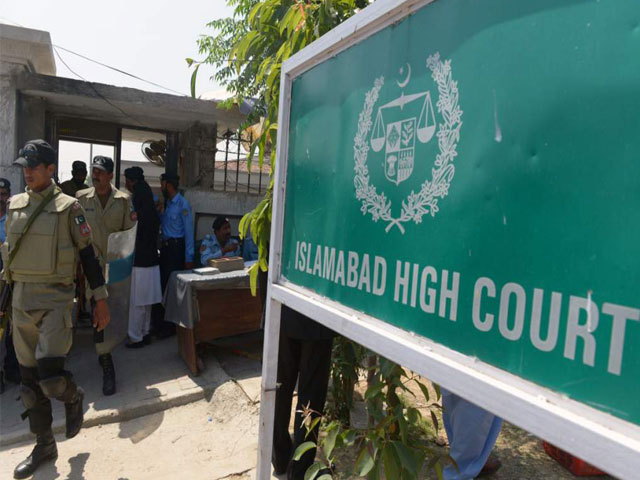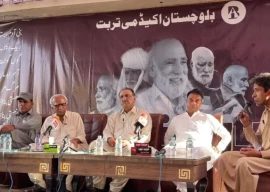
On November 6, hundreds of Tehreek-e-Labbaik supporters camped at the Faizabad Interchange in Islamabad, calling for the resignation of Law Minister Zahid Hamid, who they blamed for a hastily-abandoned change in the oath of elected representatives. The group called off its nationwide protests on November 27 after the government met its demand and accepted Hamid’s resignation.
“It is expected from the secretary, ministry of defence, that probe shall be made that how name of chief of army staff (COAS) has been used in the disputed agreement and to identify the persons responsible [who] brought embarrassment to the institution,” IHC Justice Shaukat Aziz Siddiqui said in his order on Monday while hearing a case about the protest.
The judge remarked that the language used during the sit-in was blasphemous itself, while the state ‘surrendered’ to the protesters.
IHC judge asks why army officers played mediator
He also observed that all sections of the agreement were not in accordance with the law.
The judge asked how the state could abolish cases of terrorism against the protesters who had paralysed the capital and tortured police officials. “Is the police not a part of the state? You should pay four-month salary to the police officials for their work,” he said.
The IHC judge made clear that the court would not endorse the agreement that comprised the demands of one side accepted by the federal government, with army officials playing the role of guarantor. He also urged the army to investigate the use of the name of its chief in the matter.
The court wondered whether the government had the authority to sign an agreement after a person was humiliated. If there had been the issue of ‘khaki uniform’ then the situation might be different but the assaulted officials belonged to police, therefore the government was silent, it observed. It also noted that envelopes containing cash were distributed among those who tortured the police officials.
Justice Siddiqui expressed apprehension that nobody’s life was safe in the country. He asked the attorney general, being representative of the federal government, to stop the issuance of religious decrees from mosques and seminaries declaring anyone a non-Muslim.
Attorney General Ashtar Ausaf Ali said that since the subject of the petitions pending before the IHC was directly or indirectly sub judice before the Supreme Court, no further proceedings should be conducted till the apex court’s judgment. He submitted a copy of SC’s November 30 order.
Faizabad sit-in: The trail of 21 days
The IHC said that although some issues raised through the petitions were not mentioned in the SC order, it would be appropriate that no substantive order might be passed by the high court till the final decision by the top court.
When the court questioned the contents of the agreement between the sit-in protesters and the government, the attorney general sought time to take up the matter with the relevant quarters and examine the constitutionality and legality of the accord.
The high court suggested that the “so called agreement” might be referred to a joint session of Parliament for its evaluation on the touchstone of the Constitution and law, or placed before the federal cabinet, including the mediators, for the purpose. The AGP opted for the second option.
Before adjourning the hearing till January 12, the judge wondered why referring the matter to Parliament, which was supreme, was not being preferred.

















COMMENTS (5)
Comments are moderated and generally will be posted if they are on-topic and not abusive.
For more information, please see our Comments FAQ